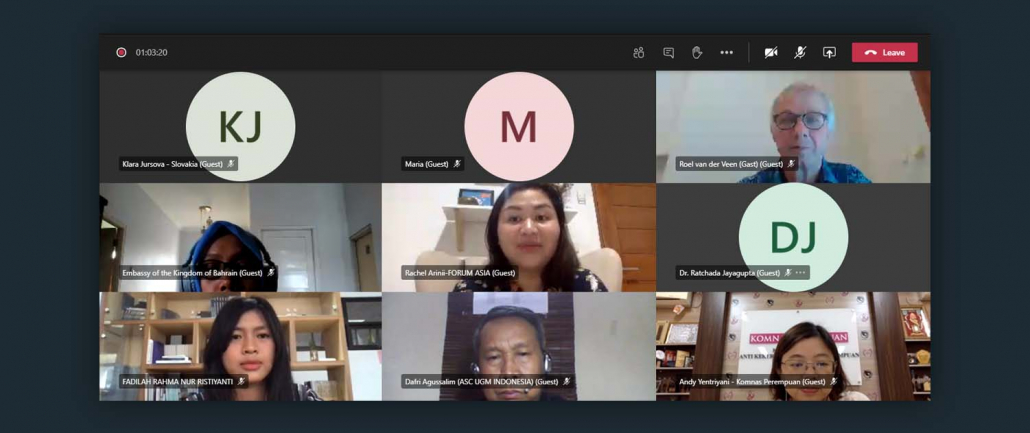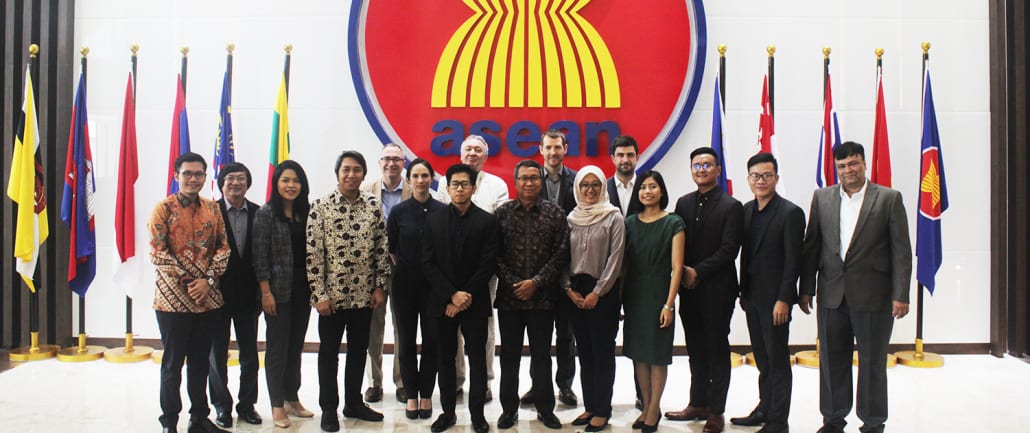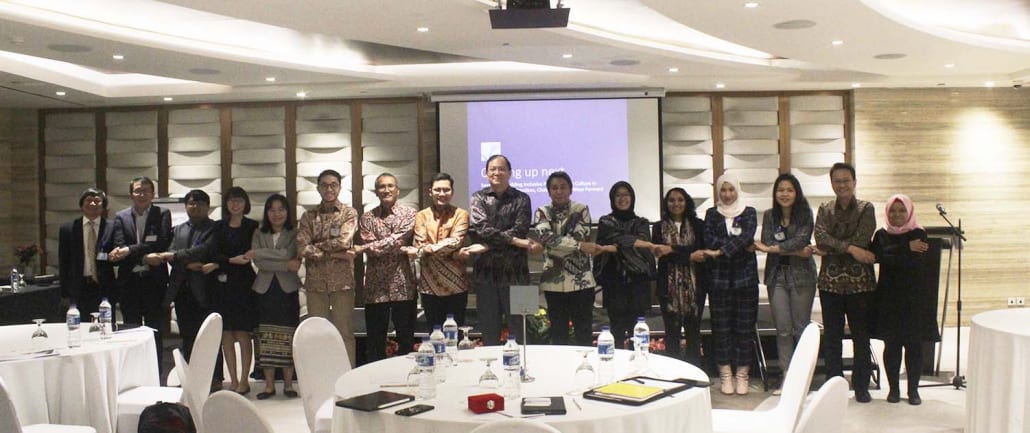Focus Group Discussion ASEAN Institute for Peace and Reconciliation: “”The Role of ICT as a Tool in Mitigating Conflict and Fostering Peace”
Monday, 25 January 2021 ASEAN Studies Center UGM attended Focus Group Discussion (FGD) organized by ASEAN Institute for Peace and Reconciliation with the main theme “The Role of ICT as a Tool in Mitigating Conflict and Fostering Peace”. ASC UGM was represented by Tunggul Wicaksono, Pulung S. Perbawani, Treviliana Eka Putri, and Joash Elisha […]
Press Release – “Diplomatic Briefing on the ACWC 10th Year Commemoration – Solidifying the Role of Think Tanks and CSOs in the Advocacy to Strengthen the ASEAN Commission of Women and Children (ACWC)”

In continuation of the commemoration of the 10th anniversary of the ASEAN Commission on the Promotion and Protection of the Rights of Women and Children (ACWC), the ASEAN Studies Center UGM conducted a Diplomatic Briefing discussing the Commission’s work in the past decade and future outlook of its work. This event was held virtually on […]
Press Release – Webinar “Solidifying the Role of Think Tanks and CSOs in the Advocacy to Strengthen the ASEAN Commission of Women and Children (ACWC)”

Yogyakarta, 8 October 2020. On Thursday, 8 October 2020, ASEAN Studies Center UGM held a webinar under the theme of Solidifying the Role of Think Tanks and CSOs in the Advocacy to Strengthen the ASEAN Commission of Women and Children (ACWC). The webinar, with the support of Embassy of the Kingdom of the Netherlands and […]
Press Release – Bincang ASEAN: “Challenges for Indonesia and ASEAN”

Yogyakarta, 3 July 2020 The fourth edition of Bincang ASEAN Webinar was held on Thursday, 23rd July 2020. Co-hosted by the ASEAN Studies Center and the Coordinating Ministry of Political, Legal, and Security Affairs (Kemenkopolhukam), the event invited five keynote speakers namely: H.E. Ambassador Chilman Arisman (Chief Diplomat of the Directorate of ASEAN political and […]
Press Release – Bincang ASEAN: “The Past and the Future of ASEAN Health Cooperation”
Yogyakarta, 5 May 2020 ASEAN Studies Center, Universitas Gadjah Mada held its first Bincang ASEAN Webinar on Tuesday, 5 May 2020, inviting Ahmad Rizky Mardathillah Umar, M.Sc, a PhD candidate at the University of Queensland, Australia and former Executive Secretary of the Center. Umar shares his take on the current COVID-19 pandemic focusing on the […]
Press Release – Ambassadorial Lecture “After the Commemorative Summit, Future of ASEAN-Korea Strategic Partnership”

On Friday, March 6, 2020, ASEAN Studies Center UGM held an Ambassadorial Lecture by the Ambassador of The Republic of Korea to ASEAN, H.E. Ambassador Extraordinary and Plenipotentiary Lim Sungnam, under the theme of “After the Commemorative Summit, Future of ASEAN-Korea Strategic Partnership”. The Ambassadorial Lecture was held at the Faculty of Social and Political […]
Press Release: Working Conference – ASEAN-UK Relations in the Changing Regional Architecture

A Working Conference under the theme of “ASEAN-United Kingdom Relations in the Changing Regional Architecture” was held on 18-19 February 2020. It brought together experts from ASEAN Member States and Southeast Asian experts from the United Kingdom to exchange ideas on creating strategic partnership avenues between ASEAN and the United Kingdom with acknowledgement towards the […]
Internship at ASEAN Studies Center 2021

Greetings from the ASEAN Studies Center UGM! This year, ASEAN Studies Center Universitas Gadjah Mada offers Undergraduate Students and Fresh Graduates from any majors and various universities in Indonesia to take part in our online internship program in three work divisions. The internship program will enable you to experience the dynamics of the ASEAN Community! […]
Press Release: Sharing Seminar on Policy Research and Consultancy “Building an Inclusive Platform of Regional Policy-Making in ASEAN”

A one-day “Sharing Seminar on Policy Research and Consultancy: Building an Inclusive Platform of Regional Policy-Making in ASEAN” was held at Ashley Hotel, Jakarta, on Tuesday, 21 January 2020. The Seminar invited researchers from ASEAN Member States to participate in sharing their best practices of formulating strategic policy-making with the government and among think tanks. […]
Press Release: CIFP 2019

In collaboration with the Foreign Policy Community of Indonesia’s annual Conference on Indonesian Foreign Policy (CIFP), the ASEAN Studies Centre hosted a Parallel Session titled “ASEAN Centrality, and the Indo Pacific: Can They Change the Geostrategic Chessboard?”. The Conference is the largest foreign policy conference in Indonesia and the world and was hosted on the […]
